 W
WMatias de Albuquerque, the first and only Count of Alegrete, was a Brazilian colonial administrator and soldier. He was nicknamed "Hero of Two Continents" for his performance, beginning in 1624, against the Dutch invaders of colonial Brazil and for his role, beginning in 1641, as a general in Portugal, fighting for João IV during the Portuguese Restoration War, where he won the battle of Montijo over the Spaniards (1644). For this victory he was rewarded by the King with the title of Count of Alegrete.
 W
WDom Francisco de Almeida, also known as the Great Dom Francisco, was a Portuguese nobleman, soldier and explorer. He distinguished himself as a counsellor to King John II of Portugal and later in the wars against the Moors and in the conquest of Granada in 1492. In 1505 he was appointed as the first governor and viceroy of the Portuguese State of India. Almeida is credited with establishing Portuguese hegemony in the Indian Ocean, with his victory at the naval Battle of Diu in 1509. Before Almeida could return to Portugal, he lost his life in a conflict with indigenous people at the Cape of Good Hope in 1510. His only son Lourenço de Almeida was previously killed in the Battle of Chaul.
 W
WAndré de Albuquerque Ribafria was a 17th-century Portuguese nobleman and military leader. Orphaned at a young age, Ribafria won fame as a commander during the Portuguese Restoration War, fighting in several notable battles before being killed in action.
 W
WAntónio das Chagas, O.F.M., was a Portuguese Franciscan friar and ascetical writer.
 W
WFrancisco Barreto was a Portuguese soldier and explorer. An officer in Morocco during his early life, Barreto sailed to Portuguese India and was eventually appointed viceroy of the colony. After his return to Lisbon, he was tasked with an expedition to southeast Africa in search of legendary gold mines. Barreto died in what is now Mozambique, having never reached the mines.
 W
WJorge Cabral was a Portuguese nobleman, soldier and explorer who was the 15th ruler of Portuguese India as governor from 13 of June 1549 to November 1550.
 W
WOtelo Nuno Romão Saraiva de Carvalho, GCL, is a retired Portuguese military officer. He was the chief strategist of the 1974 Carnation Revolution in Lisbon. After the Revolution, Otelo assumed leadership roles in the first Portuguese Provisional Governments, alongside Vasco Gonçalves and Francisco da Costa Gomes, and as the head of military defense force COPCON. In 1976, Otelo ran in the first Portuguese presidential election, in which he placed second with the base of his support coming from the far-left. In the 1980s Otelo was accused of having involvement with the controversial Forças Populares 25 de Abril.
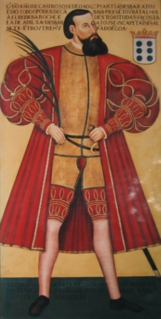 W
WDom João de Castro was a Portuguese nobleman and the fourth viceroy of Portuguese India. He was called Castro Forte by the poet Luís de Camões. De Castro was the second son of Álvaro de Castro, the civil governor of Lisbon. His wife was Leonor de Coutinho.
 W
WGonçalo Teixeira Corrêa was a Portuguese artillery captain who led a mission across the Ming Empire to fight its Manchu invaders and train its army in the use of Western cannon. After he was killed defending Dengzhou in Shandong from mutinous troops under Kong Youde and Geng Zhongming, he was eulogized and honored by the Chinese, whose War Ministry granted him the posthumous rank of Assistant Regional Commander.
 W
WHumberto da Silva Delgado, ComC, GCA, GOA, ComA, OA, ComSE, GCL, OIP, CBE was a General of the Portuguese Air Force, diplomat and politician.
 W
WGeraldo Geraldes or Gerald the Fearless, known in Portuguese as Geraldo Sem Pavor, was a Portuguese warrior and folk hero of the Reconquista whose theatre of operations was in the barren Alentejo and Extremadura regions of the lower Guadiana river. The city of Évora was the most lasting of his conquests and was never retaken. His success and independence have suggested parallels with the Castilian hero El Cid and Gerald has been called "the Cid of Portugal".
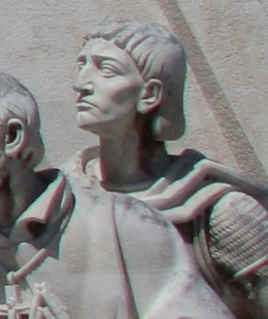 W
WCristóvão da Gama, anglicised as Christopher da Gama, was a Portuguese military commander who led a Portuguese army of 400 musketeers on a crusade in Ethiopia (1541–1543) against the far larger Adal Muslim army of Imam Ahmad ibn Ibrahim al-Ghazi aided by the Ottoman Empire.
 W
WEstêvão da Gama was the Portuguese governor of Portuguese Gold Coast (1529–15??) and Portuguese India (1540–1542). Named after his paternal grandfather Estêvão da Gama, Estêvão was the second son of Vasco da Gama and brother of Cristóvão da Gama.
 W
WLuís Vaz Pereira Pinto Guedes, 2nd Viscount of Montalegre, was a Portuguese soldier, born 1770, who served on the absolutist side in Portugal's Liberal Wars.
 W
WJosé Jorge Loureiro was a Portuguese soldier and politician at the time of the monarchy.
 W
WIsabel Madeira was a Portuguese soldier, known for her participation in the defence of Portuguese Diu in India during the siege of 1546. She was the captain of a battalion of female combatants.
 W
WFernando José Salgueiro Maia, GOTE, GCL, commonly known just by Salgueiro Maia, was a captain of the Portuguese army. He made a significant contribution to the Carnation Revolution, which resulted in the fall of the then-ruling dictatorship.
 W
WGeneral Vasco Mascarenhas, 1st Count of Óbedos, OC, was a Portuguese nobleman and colonial governor, who was Governor General of Brazil, Viceroy of Brazil and Viceroy of India.
 W
WJoaquim Augusto Mouzinho de Albuquerque was a Portuguese cavalry officer. He captured Gungunhana in Chaimite (1895) and pacified Mozambique. He was a grandson of Luís da Silva Mouzinho de Albuquerque.
 W
WHenrique Mitchell de Paiva Cabral Couceiro was a Portuguese soldier, colonial governor, monarchist politician and counter-revolutionary; he was notable for his role during the colonial occupation of Angola and Mozambique and for his dedication to the monarchist cause during the period of the First Portuguese Republic through the founding of the Monarchy of the North.
 W
WAlexandre Alberto da Rocha de Serpa Pinto, Viscount of Serpa Pinto was a Portuguese explorer of southern Africa and a colonial administrator.
 W
WD. Nuno Álvares Pereira, O. Carm., also spelled Nun'Álvares Pereira, 7th Count of Barcelos, 3rd Count of Ourém and 2nd Count of Arraiolos, was a Portuguese general of great success who had a decisive role in the 1383-1385 Crisis that assured Portugal's independence from Castile. He later became a mystic and was beatified by Pope Benedict XV, in 1918, and canonised by Pope Benedict XVI in 2009.
 W
WÁlvaro Xavier da Fonseca Coutinho e Póvoas, was a Portuguese military and noble, who served on the Miguelist side in Portugal's Liberal Wars.
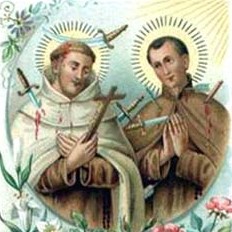 W
WRedemptus of the Cross, was a Portuguese lay brother in the Order of Discalced Carmelites. He was put to death along with other members of a group sent to Aceh by Portuguese authorities.
 W
WEstácio de Sá was a Portuguese soldier and officer. Sá travelled to the colony of Brazil on the orders of the Portuguese crown to wage war on the French colonists commanded by Nicolas Durand de Villegaignon. These French colonists had established themselves in 1555 at Guanabara Bay in Rio de Janeiro, in a settlement known as France Antarctique. He was the founder of Rio de Janeiro, now the second largest city in Brazil.
 W
WGarcia de Sá was a Portuguese nobleman, soldier, explorer, fidalgo of the Royal Household, who was the 14th ruler of Portuguese India as governor from June 1548 to 13 of June 1549.
 W
WSalvador Correia de Sá e Benevides was a Portuguese admiral and crown administrator. In 1625 he fought the Dutch invasion of Salvador in Brazil and regained Angola and São Tomé Island from the Dutch in 1647. He was the governor of Rio de Janeiro, parts of Southern Brazil and Angola.
 W
WManuel Gregório de Sousa Pereira de Sampaio, 1st Viscount of Santa Marta, was a Portuguese military leader and noble, who served on the Miguelist side in Portugal's Liberal Wars.
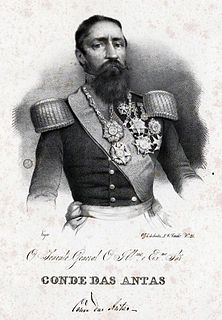 W
WFrancisco Xavier da Silva Pereira, 1st Count of Antas was a Portuguese nobleman and a leading soldier of the period of the Liberal Wars.
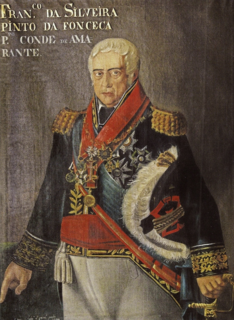 W
WFrancisco da Silveira Pinto da Fonseca Teixeira, was the 1st Count of Amarante, who joined the Portuguese army and fought in the War of Oranges and other campaigns of the Peninsular War, as an offshoot of the Napoleonic Wars.
 W
WTomé de Sousa (1503–1579) was the first governor-general of the Portuguese colony of Brazil from 1549 until 1553. He was a nobleman and soldier born in Rates, Póvoa de Varzim. Sousa was born a noble and participated in military expeditions in Africa, fought the Moors and commanded the nau Conceição to Portuguese India, part of the armada of Fernão de Andrade.
 W
WJosé Lúcio Travassos Valdez, only Baron and first Count of Bonfim, was a Portuguese soldier and statesman.